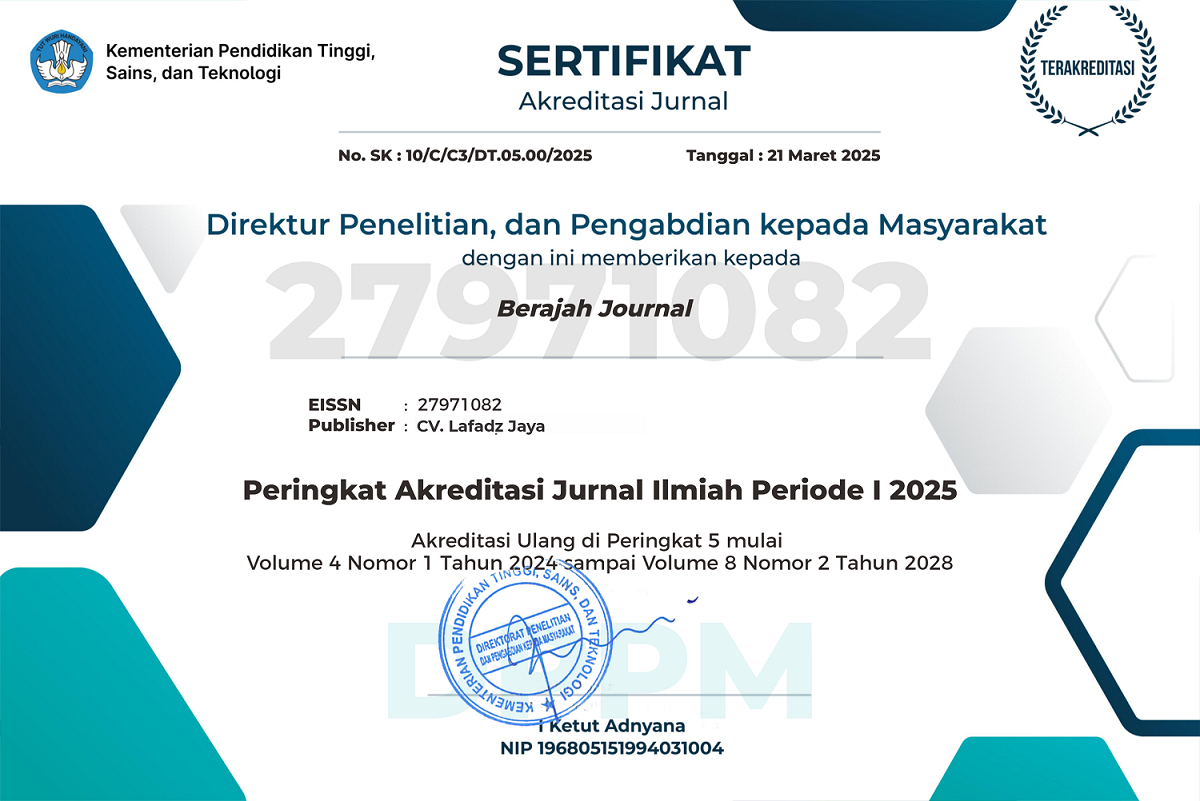THE IMPORTANCE OF IMPLEMENTING NON-CONVICTION BASED ASSET FORFEITURE IN THE RECOVERY OF CORRUPTION PROCEEDS ASSETS
DOI:
https://doi.org/10.47353/bj.v4i2.323Keywords:
NCB, without punishment, corruptionAbstract
The Anti-Corruption Convention has mandated participating countries to confiscate assets resulting from corruption without punishment. This aims to further optimize recovery of state losses due to corruption. Difficulties that may be encountered when confiscation of assets is carried out after the verdict is that the confiscation of assets fails to be carried out because the judge's decision states that the defendant is not guilty or the assets resulting from corruption have been confiscated by the defendant. This article will discuss the importance of implementing asset confiscation without punishment (or also called Non-Conviction Based Asset Forfeiture) as an effort to optimize recovery of state losses. The research method used in this writing is the normative legal research method. The approach used is a conceptual approach. The results of this research are that the Non-Conviction Based Asset Forfeiture mechanism is a form of shift from material truth regarding corrupt behavior carried out by the defendant to formal truth regarding the legality of assets controlled by the corruptor. The focus of this mechanism is not on the fault of the defendant who has committed corruption, but on the illegal assets under his control.
Downloads
References
Khairunnisa, P. ., & Herning Sitabuana, T. . (2022). Tindakan Korupsi Oknum Ditjen Pajak Mempengaruhi Persepsi Wajib Pajak Atas Pemungutan Pajak. Sibatik Journal: Jurnal Ilmiah Bidang Sosial, Ekonomi, Budaya, Teknologi, Dan Pendidikan, 1(7), 1179–1194. https://doi.org/10.54443/sibatik.v1i7.139
Patria Setyawan, V. (2024). The Importance of Adopting and Adapting Non-Conviction Based Asset Forfeiture Norms in Eradicating Corruption (Vol. 1, Issue 1). https://yasyahikamatzu.com/index.php/hjm/
Patria Setyawan, V., & Dwi Kurniawan, I. (2022). Reversal Of The Burden Of Proof And Recovery Of State Assets Due To Corruption (Vol. 37, Issue 1). https://databoks.katadata.
Pranoto, A., Darmo, A. B., Hidayat, I., Indonesia, H. P., & Masalah, A. L. B. (2018). Kajian Yuridis Mengenai Perampasan Aset Korupsi. Jurnal Legalitas, X.
Prasetyo, D. R. (2016). Penyitaan Dan Perampasan Aset Hasil Korupsi Sebagai Upaya Pemiskinan Koruptor. DiH: Jurnal Ilmu Hukum, 12(24). https://doi.org/10.30996/dih.v12i24.2243
Saputra, R. (2017). Tantangan Penerapan Perampasan Aset Tanpa Tuntutan Pidana (Nonconviction Based Asset Forfeiture) Dalam Ruu Perampasan Aset Di Indonesia. Integritas, Vol. 3(1).
Setyawan, Vincentius Patria; Widiartana, Gregorius. Criminalization Of Santet In The Reform Of The Criminal Law. Res Judicata, [S.l.], v. 6, n. 1, p. 43-50, nov. 2023. ISSN 2621-1602. Available at: <https://openjurnal.unmuhpnk.ac.id/RJ/article/view/5330>. Date accessed: 23 may 2024. doi:http://dx.doi.org/10.29406/rj.v6i1.5330.
Sofyanoor, A. . (2022). Peran Hukum Administrasi Negara Dalam Pemberantasan Korupsi Di Indonesia. Sibatik Journal: Jurnal Ilmiah Bidang Sosial, Ekonomi, Budaya, Teknologi, Dan Pendidikan, 1(2), 21–30. https://doi.org/10.54443/sibatik.v1i2.9
Susanti, L., & Husaini, M. (2023). The Influence of The Corruption Perception Index, Exports of Goods and Services, and Unemployment Rate on Economic Growth in 9 ASEAN Countries. International Journal of Social Science, Education, Communication and Economics (SINOMICS JOURNAL), 2(2), 291–304. https://doi.org/10.54443/sj.v2i2.138
Takanjanji, J. (2021). Merefleksi Penegakan Hukum Tindak Pidana Penipuan Online. Widya Pranata Hukum: Jurnal Kajian Dan Penelitian Hukum, 2(2). https://doi.org/10.37631/widyapranata.v2i2.260
Tampubolon, P. ., L. Panggabean, M., & Tampubolon, M. . (2024). Kajian Kriminologi Korupsi Di Sektor Publik Di Indonesia. Berajah Journal, 4(2), 211–234. https://doi.org/10.47353/bj.v4i2.303
Widiartana, G., & Setyawan, V. P. (2023). Prospects of Artificial Intelligence Criminal Liability Regulations in Indonesian Criminal Law. Jurnal Kewarganegaraan, 7(1), 325-331.
Widiartana, G., & Setyawan, V. P. (2020). Urgensi Pendidikan Antikorupsi Terhadap Pencegahan Korupsi Dalam Pendidikan Dasar. Jurnal Hukum Mimbar Justitia, 6(2), 173.
Downloads
Published
How to Cite
Issue
Section
License
Copyright (c) 2024 Gregorius Widiartana

This work is licensed under a Creative Commons Attribution 4.0 International License.






















